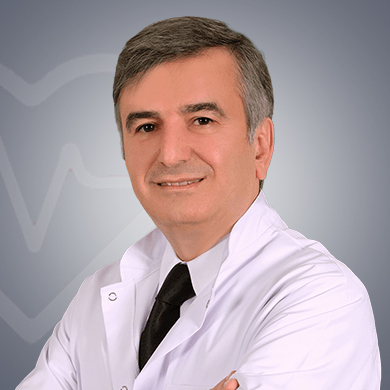
0 Years of experience
Speaks: English
Here is a list of some of the conditions the General Laparoscopic Surgeon Tayfun Karahasanoglu treats:
The General Laparoscopic Surgeon uses “minimally invasive” surgery to treat various digestive conditions. Most intestinal surgeries are performed using the laparoscopic technique. They include surgery for ulcerative colitis, cancer, Crohn’s disease, diverticulitis, rectal prolapse, and constipation.
In case your body shows any of the below-given symptoms, consult a General Laparoscopic Surgeon who will help diagnose the underlying conditions:
The symptoms are caused by a disorder that affects the abdomen or pelvis and could vary greatly as the nervous system controls many various body functions.
Doctor Tayfun Karahasanoglu is available from 11 am to 5 pm (Monday to Saturday). The doctor is not available on Sunday.
With several years of experience and deep knowledge, Dr Tayfun Karahasanoglu has successfully performed a wide range of surgeries. Some of the popular procedures performed by the specialists include:
Laparoscopic cholecystectomy is common these days. It is the surgical removal of the gallbladder through many small incisions and using a laparoscope. A laparoscope is a long camera that allows the doctor to have a view of the surgical area during gallbladder removal. Your doctor may opt for laparoscopic gallbladder surgery if a person develops gallstones or cholelithiasis that cause pain.

Share Your Experience about Dr. Tayfun Karahasanoglu

A doctor who is trained in laparoscopic surgery is called a general Laparoscopic Surgeon. Laparoscopy is a type of operation performed in the abdomen and pelvis using several small incisions with the help of a camera. The doctor also uses a laparoscope for diagnosis or therapeutic interventions with some small cuts in the abdomen. A General Laparoscopic Surgeon also cares for people having different conditions like Cholecystitis, Hernias, and Appendicitis, etc. The surgeon is part of a surgical team that includes anesthesiologists, nurses, and surgical technicians. You may like to talk to the surgeon about the procedure prior to surgery.
The tests required before and during the consultation by a General Laparoscopic Surgeon are listed belowA General Laparoscopic Surgeon performs the below-given tests to diagnose underlying conditions:
It is important to discuss your symptoms with your doctor so that they can assess the symptoms and recommend some tests to know the underlying condition causing the symptoms. The doctor then designs your treatment based on the test report.
Because general laparoscopic surgeons have a deep subject knowledge in complex surgery, they perform a wide variety of emergency procedures. You should see a general surgeon if you have a hernia, appendicitis, gallstones, or even a gunshot wound. Some of the symptoms which require a consultation with a General Laparoscopic Surgeon are: